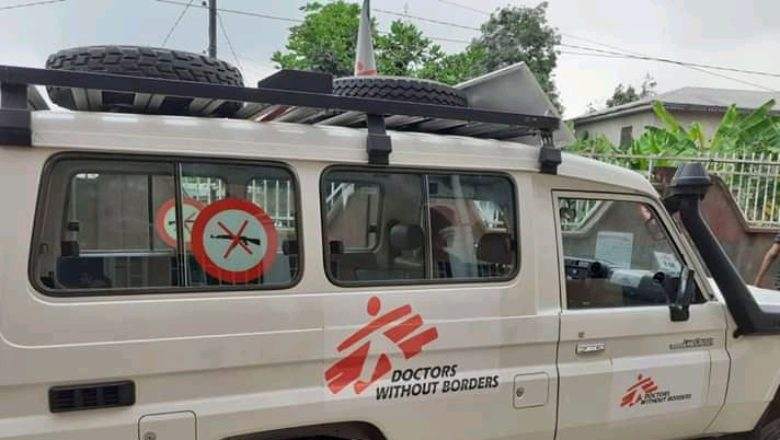Médecins Sans Frontières (MSF) has withdrawn its teams from Cameroon’s North-West region after months of suspension by the Cameroonian authorities and numerous attacks on health facilities.
Médecins Sans Frontières/Doctors Without Borders (MSF) an International NGO has withdrawn its teams from the North-West region of Cameroon after medical areas have been badly affected by armed violence between security forces and armed separatist groups and after nearly eight months of suspension by the Cameroonian authorities.
“We cannot stay any longer in a region where we are not allowed to provide care to people, and we cannot keep our staff there any longer, so we have no choice but to withdraw our teams,” says Emmanuel Lampaert, MSF’s Operations Coordinator for Central Africa.
He explained that despite the withdrawal, MSF would keep a small communication office in Bamenda, the regional capital, to continue dialogue with the authorities.
Before the suspension in Dec. 2020, after MSF’s proposal for collaboration with the government could be reviewed, MSF had provided free emergency medical care and ambulance services in the Northwest region since 2018.
Despite months of allegations stating that the organisation supports armed groups, which MSF has rejected in meetings with Cameroon authorities, MSF was not granted access to resume medical activities.
“This suspension has drastically reduced access to medical services where communities are badly affected by armed violence. The people are paying a very heavy price for this situation. If the authorities decide to lift our suspension, we will resume our medical activities as soon as possible.” Lampaert continued.
Since 2018, MSF has been one of the few international NGOs offering free medical care to communities in the Northwest region and established the only 24/7 free ambulance service in the area.
Tens of thousands of patients have benefited annually from this support especially in regions where access to care has been reduced by armed violence.
Since the beginning of the crisis, thousands of people have been displaced with no healthcare facilities due to financial, security and geographic constraints.
“It is essential that other organisations step in to provide additional support to the Ministry of Health to provide care for vulnerable people. This can be done with absolute respect for health facilities, staff and patients,” Lampaert said.
MSF has witnessed numerous attacks and destruction against healthcare facilities since 2018 and the organisation has not been exempted.
“Now that we are forced to withdraw our teams, we call on all parties to the crisis to respect healthcare providers, whether they are members of non-governmental organisations or the Ministry of Health. Any threats or violence against them or their patients is unacceptable,” he concluded.
Until the suspension of its operations, MSF teams in the Northwest region had treated 180 survivors of sexual violence, provided 1,725 mental health consultations, performed 3,272 surgeries, and transported 4,407 patients by ambulance, more than 1,000 of whom were women about to give birth.
The organisation has supported community health workers and provided 42,578 consultations, mainly for diseases such as malaria, diarrhoea and respiratory tract infections.
MSF medical staff also treated direct victims of armed violence in the region, in accordance with the principles of international humanitarian law, Common Article 3 of the Geneva Conventions and medical ethics.

